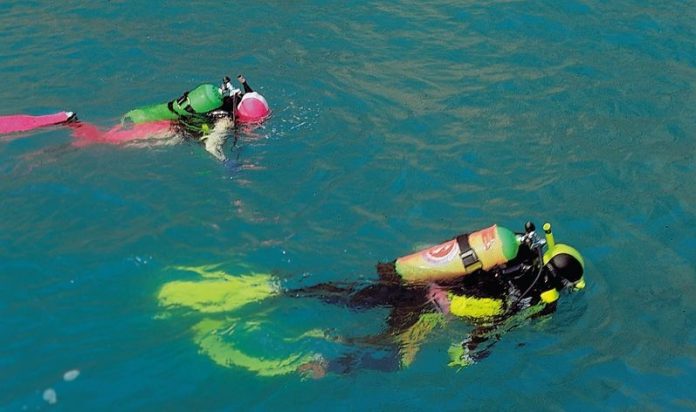While watching the exciting moments of scuba diving on television, you have always wished for a similar experience.
Well, it is not so easy to go for scuba diving. But if you follow the below-mentioned tips then you will learn it in a better way.
a) Always go for a perfect fitting scuba dive gear.
The mask you wear must be comfortable and check that there is no scope for water leakage.
The BCD must be snug enough and it should not ride around in the water. Booties and fins should be comfortable and should not cause discomfort or blisters.
b) Always monitor the air supply.
You should always practice to control and reduce your air consumption. Try to swim slowly and efficiently and don’t waive your arms around or make rapid body movements.
Take long slow inhalations and exhale equally long. Don’t hold your breath.
For safe scuba diving and slow ascends, you need to have air in your tank. Therefore always check for air consumption.
c) If you want to go scuba diving photography then, first be confident that you are a skilful diver.
Understand buoyancy, scuba breathing, and refine your waterman ship before you try to become an expert in underwater photography.
d) If you want to go for a boat dive, then arrive early to the dive boat, find a good spot, and set up your scuba dive gear before the boat even leaves the dock.
Keep mask, fins, and other loose scuba diving equipment in a mesh bag under your seat so that you can easily reach them and they remain unharmed. Always wear sun block.
Drink plenty of water and while planning your dive entry know how to get back on board after the dive.
d) Avoid too much lead as part of your dive kit because it hurt your ability to dive comfortably and safely.
Too much lead will require that you put a lot of air in your BCD, adding unnecessary weigh as you swim.
However, less lead will have you constantly working to stay down. Therefore wear just enough scuba diving weight.
e) Beginners, remember you always need a checkout dive.
Before going for a scuba diving trip, assemble the scuba gear and go diving off the beach or in some controlled circumstances.
Check all the equipment, whether they are working fine, you are properly weighted and you are comfortable in the water. Then practice your scuba breathing and buoyancy.
f) Always remain within the no-decompression limits and ascend slowly on every dive.
Do not swim directly to the surface from depth. Rather, on each and every dive you make, pause your ascent for a minute or two at 20 feet, and again at 10 feet to make preventative decompression stops
g) Remember to wear a hood.
It should be the first piece of thermal protection you consider because up to 40 percent of your heat loss is through your head.
h) If your wetsuit or dry suit lets in too much cold water, discard that immediately.
Go for a fairly tight fit suit where you can expand your chest fully. Repair broken zippers and split seams and pay special attention to the neck opening.
i) If you do not want to suffer from huge heat loss then go for a full length suit in an area where the water is too cold.
j) Between dives, always towel off the suit and wear a parka or a windbreaker, or take off the suit and dry off. Also, dry your hair and wear a hat.
k) Use wetsuits in shallow water because they compress in proportion to the depth. Compression flattens the bubbles, which are the suit’s only insulation. Also, breathing air under less pressure chills you less.
l) Get a vest or step-in jacket, preferably with a hood attached, to add warmth to a full-length wetsuit.
m) Always choose neoprene for your scuba diving suit.
n) If you have uncontrollable shivering in water then immediately come up and get warm because this is the warning sign of hypothermia.
Now, go and enjoy your scuba diving!

